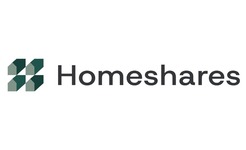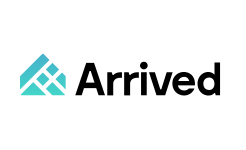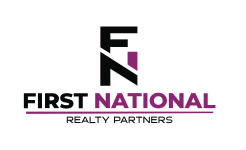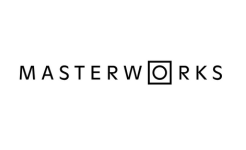Diversify like the 1%
While most of high net worth households’ capital is tied up in stocks, real estate and alternative assets make up the rest.
Real estate
One of the more common themes among the well-to-do households surveyed is that a large percentage own real estate.
According to Knight Frank’s global survey of over 600 wealth managers that manage nearly $3 trillion in assets, primary and secondary homes account for around 26% of the overall net worth of ultra-high net worth individuals in North America.
So, adding those two asset classes together, it’s clear that investors who own real estate tend to generate much higher gains over time.
Some of that could be due to the forced savings effect that real estate provides. Being a relatively illiquid asset with high transaction costs, those who simply pay their mortgage down each and every month gain a pile of equity (assuming you don't refinance).
There are other ways to tap into the $36 trillion U.S. home equity market without having to take on the burden of monthly mortgage payments or property taxes.
New investing platforms are making it easier than ever to tap into the real estate market.
For accredited investors, Homeshares gives access to the $36 trillion U.S. home equity market, which has historically been the exclusive playground of institutional investors.
With a minimum investment of $25,000, investors can gain direct exposure to hundreds of owner-occupied homes in top U.S. cities through their U.S. Home Equity Fund — without the headaches of buying, owning or managing property.
With risk-adjusted internal returns ranging from 12% to 18%, this approach provides an effective, hands-off way to invest in owner-occupied residential properties across regional markets. If you’re not an accredited investor, crowdfunding platforms like Arrived allows you to enter the real estate market for as little as $100.
Arrived offers you access to shares of SEC-qualified investments in rental homes and vacation rentals, curated and vetted for their appreciation and income potential.
Backed by world-class investors like Jeff Bezos, Arrived makes it easy to fit these properties into your investment portfolio regardless of your income level. Their flexible investment amounts and simplified process allows accredited and non-accredited investors to take advantage of this inflation-hedging asset class without any extra work on your part.
And your options aren’t limited to residential real estate. If you’re an accredited investor looking to take your portfolio to that next level and you’re looking to invest a larger sum with potential for quarterly returns, then commercial real estate might be the option for you.
For instance, through First National Realty Partners (FNRP), accredited investors can own a share of commercial properties leased to the nation’s largest essential-needs brands, including Kroger, Walmart and Whole Foods.
With a minimum investment of $50,000, you can diversify your portfolio with necessity-backed real estate without having to deal with the hassles of being a landlord. FNRP follows a triple net (NNN) lease structure, ensuring tenant costs aren’t cutting into potential returns.
The process is simple: answer a few questions — including how much you would like to invest — and start browsing their entire list of available properties. Once you’ve selected a property you like, you can attend an informative 60-minute live webinar to learn more about all facets of the investment.
Note that there is some risk involved as the assets are typically illiquid, and could receive no returns. You can speak to a professional to determine whether this type of investment is right for you.
Invest in creative alternative assets
Ultra-high net-worth individuals and households generally all have some form of alternative investment in their portfolio.
Fine art is one investment that consistently outperforms the stock market in the long-run. In fact, according to a report in Fortune magazine, contemporary art outperformed the S&P 500 with a compound annual growth rate of 12.6% between 1995 and 2022.
Many investors consider it an asset reserved for the top 1%, but that’s no longer the case.
If you’re looking to diversify your portfolio in the fine art and collectibles market, Masterworks is a platform worth considering.
Masterworks is a top platform for retail and accredited investors to purchase fractional shares of artwork by iconic artists like Banksy and Basquiat.
Masterworks’ team scours the art market for the best deals, buys them at a discount, and offers these shares to members.
Their platform is easy to use, and the Masterworks team has been working since 2019 to realize representative annualized net returns like +17.6%, +17.8%, and +21.5% (among assets held for longer than one year). See important Regulation A disclosures at Masterworks.com/cd
How to find the right asset mix
It can be tricky to figure out the right mix of investment types at your individual income level, as variances in net worth and financial goals make generalized advice difficult to follow. If you’re looking for peace of mind, hiring a financial advisor can help you to feel good about your money moves.
FinancialAdvisor.net is a free online service that helps you find a financial advisor who can help you create a plan to reach your financial goals. Just answer a few questions and their extensive online database will match you with a few vetted advisors based on your answers.
You can view advisor profiles, read past client reviews, and schedule an initial consultation for free with no obligation to hire.










